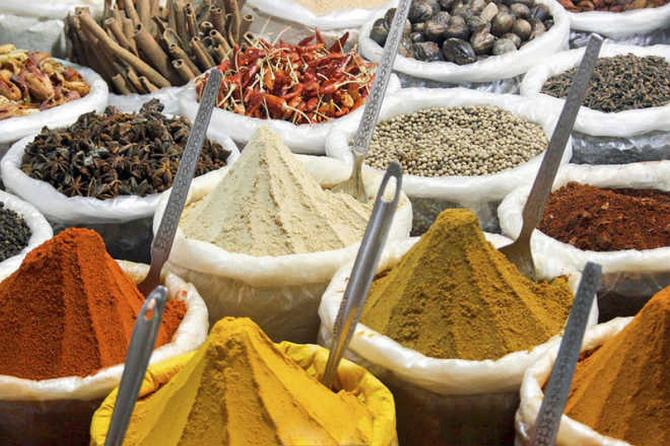Countries that raised concerns about the quality of Indian spices have called for urgent attention and action, Delhi-based think tank Global Trade Research Initiative (GTRI) said on Wednesday.

The stakes are high since India exported spices worth about $692.5 million to the United States (US), Hong Kong, Singapore, Australia and Maldives in the financial year 2023-24 (FY24), it said.
During FY24, India’s spice exports were worth $4.25 billion, accounting for a 12 per cent share of the global spice exports.
“If China — influenced by actions in Hong Kong and Asean based on the precedents set by Singapore — decides to implement similar measures, Indian spice exports could see a dramatic downturn.
"The potential repercussions could affect exports worth $2.17 billion, representing 51.1 per cent of India’s global spice exports,” GTRI said in a report.
The report further said the situation could worsen if the European Union (EU), which regularly rejects Indian spice consignments over quality issues, follows suit.
“An EU-wide rejection could impact an additional $2.5 billion, bringing the total potential loss to 58.8 per cent of India’s worldwide spice exports,” it said.
Last month India-based MDH and Everest's products were banned for allegedly containing pesticide ‘ethylene oxide’ (ETO) beyond permissible limits.
On April 5, the Centre for Food Safety (CFS) in Hong Kong flagged the presence of ETO in samples of pre-packaged spice mix products of both MDH and Everest Spices.
The CFS had further suspended sales of the affected products —Madras curry powder, sambhar masala mixed masala powder, curry powder mixed masala powder by MDH and the fish curry masala by Everest — in the country.
On April 18, the Singapore Food Agency (SFA) also issued a notification to recall Everest fish curry masala after finding traces of ETO in it.
“India needs to address the quality issues with urgency and transparency…Erring firms should face immediate repercussions.
"However, the response from Indian authorities has been tepid and formulaic.
"Following international criticism, both the Spices Board and the Food Safety and Standards Authority of India (FSSAI) began routine sampling.
"Yet no definitive statements about spice quality have been issued by them or any other government agency,” report said.










